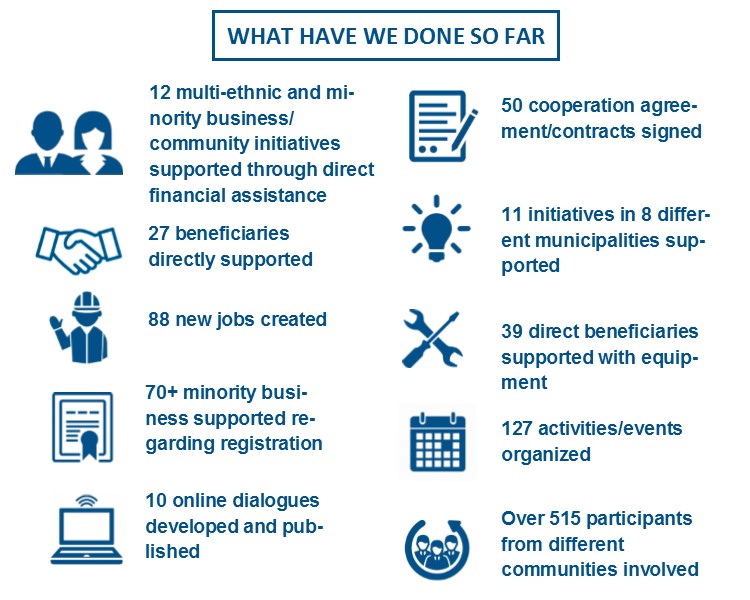-
Who We Are
WHO WE AREThe International Organization for Migration (IOM) is part of the United Nations System as the leading inter-governmental organization promoting since 1951 humane and orderly migration for the benefit of all, with 175 member states and a presence in over 100 countries. IOM has had a presence in Kosovo since 1999.
About
About
IOM Global
IOM Global
-
Our Work
Our WorkAs the leading inter-governmental organization promoting since 1951 humane and orderly migration, IOM plays a key role to support the achievement of the 2030 Agenda through different areas of intervention that connect both humanitarian assistance and sustainable development. Across Kosovo, IOM is implementing several programmes to the benefit of all Kosovars
Cross-cutting (Global)
Cross-cutting (Global)
- Data and Resources
- Take Action
- 2030 Agenda
Promoting Social Integration and Reconciliation project aims to contribute towards a more inclusive society for Kosovars of all ethnic backgrounds by supporting multi-ethnic business development and different socio-economic initiatives, fostering cooperation and joint initiatives, supporting multi-ethnic women and youth initiatives as well as proper media reporting and thus building confidence between communities and addressing points of friction for long term reconciliation.
Project goals are
- Improved socio-economic inclusion and resilience of disadvantaged communities through stimulating active labour market and community initiatives,
- Strengthened inter-ethnic integration between Business Community through promotion of practical cooperation and better economic policy making, and,
- Improved inter-ethnic relations and social inclusion of disadvantaged groups through responsible media reporting and multi-ethnic community actions.
Background
Post-conflict Kosovo still suffers from a weak economy characterised by limited job opportunities. In the longer term this situation could potentially induce social unrests and become a vehicle for inter-ethnic conflicts.
At the same time, the business environment in Kosovo Serb communities in Kosovo is struggling and there are many minority businesses which due to real and perceived political, legal and administrative barriers are not able to realise their full potential as they lack access to the full Kosovo market.
Moreover, traditional values, patriarchal structures, gender-based violence, social exclusion, discrimination, and low participation of women and youth in decision-making undermine gender equality in daily life. Women and youth in Kosovo continue to be disadvantaged, including on the labour market. Unemployment and low labour force participation still affect women and youth disproportionately where 42% of women and 55% of youth compared to 33% of men are unemployed.
The particular needs and perspectives of women and youth oftentimes are overlooked to the primacy of the household head, but need to be taken into consideration in the design of any assistance programme. In order to reduce the socio-economic marginalisation of members of minority communities, the project will seek to support initiatives that take into consideration the effects of inter-sectionality and the double marginalization often faced by women and youth of minority communities.
- What have we done so far
-

For more information about our activities (projects) click here
The project is funded by the British Embassy in Prishtina and implemented by International Organization for Migration (IOM).